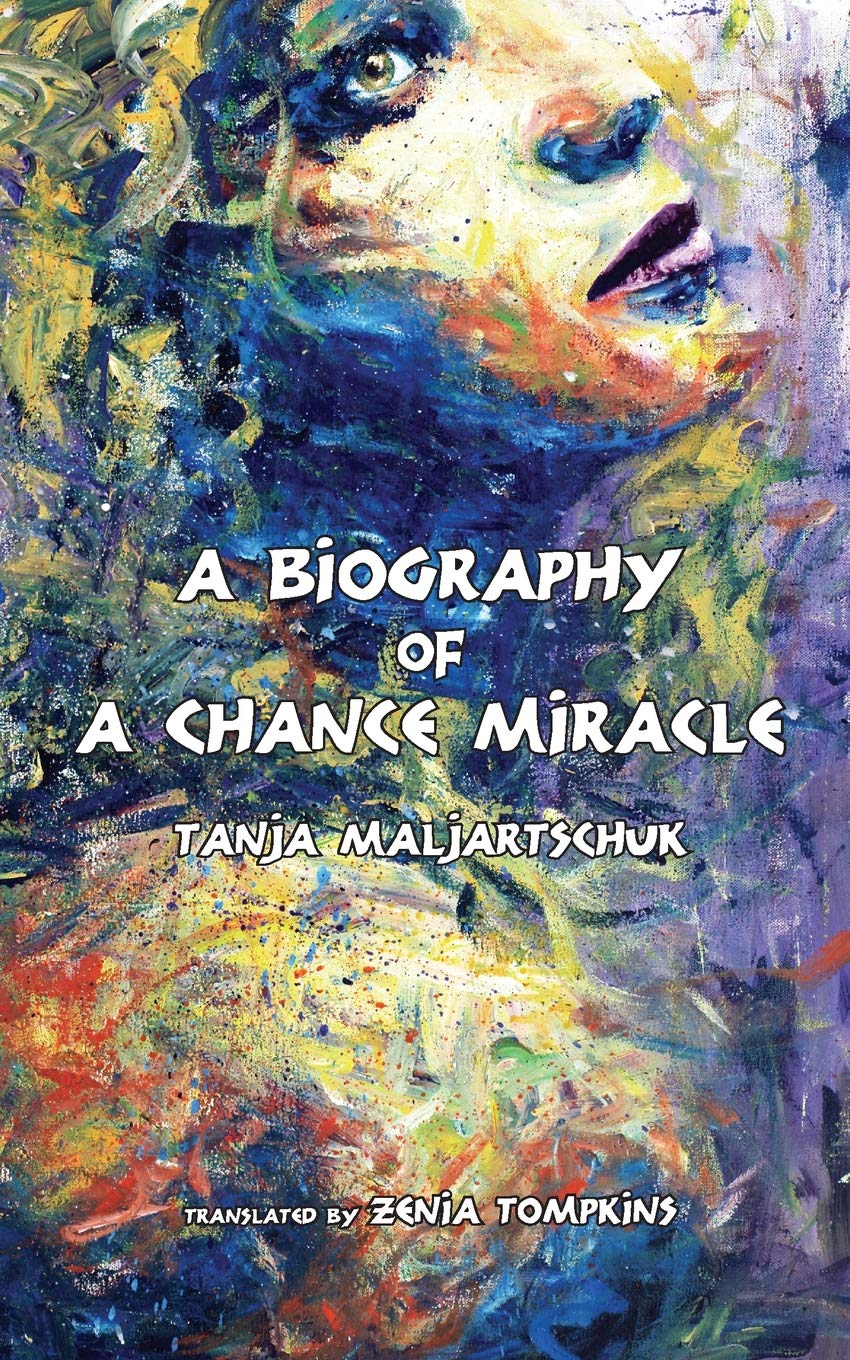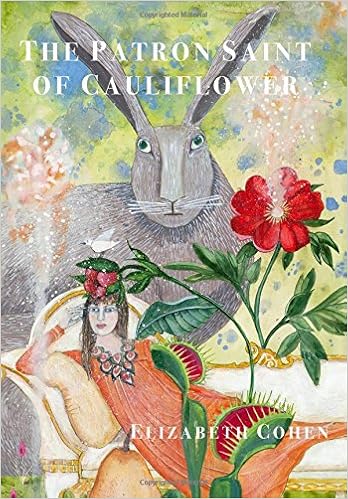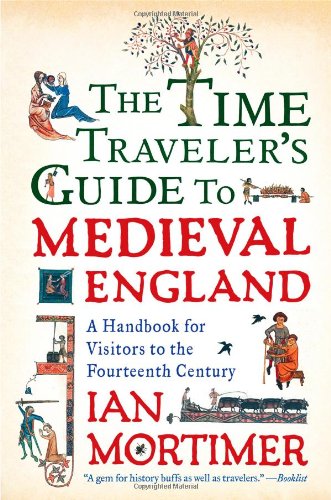 The first third of A Thing of the Moment is by far the most successful part of the novel. Its gradual unfolding of the children’s individual lives is compelling and increasingly disturbing, particularly Isabella’s bizarre and horrifying family. Injustice, unfairness, evil – seen through the eyes of a child, these things have an existential weight and determining force that can distort a life forever.
The first third of A Thing of the Moment is by far the most successful part of the novel. Its gradual unfolding of the children’s individual lives is compelling and increasingly disturbing, particularly Isabella’s bizarre and horrifying family. Injustice, unfairness, evil – seen through the eyes of a child, these things have an existential weight and determining force that can distort a life forever.
Category: Book Reviews
Book Reviews
A review of Rise: Surviving the Fight of My Life by Paige VanZant
 Throughout the later chapters of Rise, VanZant takes readers on the rollercoaster of her professional career. From the incredible flying head kick finish of Bec Rawlings to her famous defeat at the hands of Michelle Waterson in the main event of UFC on Fox 22, we see her excitement and disappointment at various moments in her career. No matter if she’s sharing the highs or lows, it is impossible to read these reminiscences without rooting for her every inch of the way.
Throughout the later chapters of Rise, VanZant takes readers on the rollercoaster of her professional career. From the incredible flying head kick finish of Bec Rawlings to her famous defeat at the hands of Michelle Waterson in the main event of UFC on Fox 22, we see her excitement and disappointment at various moments in her career. No matter if she’s sharing the highs or lows, it is impossible to read these reminiscences without rooting for her every inch of the way.
A review of Frederick Douglass: Prophet of Freedom by David W. Blight
 David Blight’s book delivers the new Frederick Douglass standard-bearer for years to come. In our own troubled times the “prophet of freedom” can indeed offer wisdom, but we must be cognizant of the pitfalls of forcing him into modern controversies. We should acknowledge his compelling radicalism without sidestepping his essential complexity.
David Blight’s book delivers the new Frederick Douglass standard-bearer for years to come. In our own troubled times the “prophet of freedom” can indeed offer wisdom, but we must be cognizant of the pitfalls of forcing him into modern controversies. We should acknowledge his compelling radicalism without sidestepping his essential complexity.
A review of A Biography of a Chance Miracle by Tanja Maljartschuk
 A Biography of a Chance Miracle is a collection of stories that appear unnoteworthy at first glance, but swell and fill the imagination as one reads them. The final twist is both perfectly surreal and perfectly logical in a book whose hero’s stubborn faith—in herself, if nothing else—is nothing short of magic.
A Biography of a Chance Miracle is a collection of stories that appear unnoteworthy at first glance, but swell and fill the imagination as one reads them. The final twist is both perfectly surreal and perfectly logical in a book whose hero’s stubborn faith—in herself, if nothing else—is nothing short of magic.
A review of Love and Ruin by Paula McLain
 Although Love and Ruin is a first-rate historical novel, it might not have pleased Gellhorn, because, in a way, it reduces her to a footnote in Hemingway’s life. By focusing on 1936-1945, Gellhorn’s “Hemingway” years, McLain makes them seem the major experience of Gellhorn’s life, when in fact they were just a blip on the radar screen of Gellhorn’s eighty-nine year life span. Even so, Love and Ruin is a page-turner, a novel that’s hard to put down.
Although Love and Ruin is a first-rate historical novel, it might not have pleased Gellhorn, because, in a way, it reduces her to a footnote in Hemingway’s life. By focusing on 1936-1945, Gellhorn’s “Hemingway” years, McLain makes them seem the major experience of Gellhorn’s life, when in fact they were just a blip on the radar screen of Gellhorn’s eighty-nine year life span. Even so, Love and Ruin is a page-turner, a novel that’s hard to put down.
A review of The Patron Saint of Cauliflower by Elizabeth Cohen
 Some secrets when told are betrayals, or suicides, blood spilled or spells cast, for magic and saints governing and protecting, are also secret languages, the ancient rites of certain religions also called “mysteries.” And, so it is in this well-balanced and short collection, an excursion into mysteries, methods of preserving and enduring.
Some secrets when told are betrayals, or suicides, blood spilled or spells cast, for magic and saints governing and protecting, are also secret languages, the ancient rites of certain religions also called “mysteries.” And, so it is in this well-balanced and short collection, an excursion into mysteries, methods of preserving and enduring.
A review of Welcome to Saint Angel by William Luvaas
 With its descriptions of a collective madness sparked by mendacity and greed disguised as irresistible ‘progress’, Welcome to Saint Angel has literary antecedents in the cynical realism of Sinclair Lewis and the paranoid desperation of Nathaniel West, plus a liberal dose of Gore Vidal in his Duluth mood.
With its descriptions of a collective madness sparked by mendacity and greed disguised as irresistible ‘progress’, Welcome to Saint Angel has literary antecedents in the cynical realism of Sinclair Lewis and the paranoid desperation of Nathaniel West, plus a liberal dose of Gore Vidal in his Duluth mood.
Aching toward Redemption: a review of Medusa’s Country by Larissa Shmailo
 It is a collection of incredibly intelligent and subtle poetry that never loses focus of its themes. It is a poetry that aches toward redemption even as it is bogged down by histories and impulses that cannot be undone. So between the transcendent and the incarnate there is a wrestling for justice.
It is a collection of incredibly intelligent and subtle poetry that never loses focus of its themes. It is a poetry that aches toward redemption even as it is bogged down by histories and impulses that cannot be undone. So between the transcendent and the incarnate there is a wrestling for justice.
Time Traveller’s Guide to Elizabethan England by Ian Mortimer
 If you want to fit in, to know the dos and don’ts, and to understand the cultural oddities, you’ll need a copy of Ian Mortimer’s Time Traveller’s Guide. In it, he paints a living, breathing picture of the sickness and the suffering, the power and the glory that was Elizabethan England, and tells you everything you’ll need to know to survive in their world. When you arrive, you’ll find that your “ancestors are not inferior to [you]; they do not lack sophistication, subtlety, innovation, wit or courage”.
If you want to fit in, to know the dos and don’ts, and to understand the cultural oddities, you’ll need a copy of Ian Mortimer’s Time Traveller’s Guide. In it, he paints a living, breathing picture of the sickness and the suffering, the power and the glory that was Elizabethan England, and tells you everything you’ll need to know to survive in their world. When you arrive, you’ll find that your “ancestors are not inferior to [you]; they do not lack sophistication, subtlety, innovation, wit or courage”.
A review of Beneath the Mother Tree by D M Cameron
 Cameron’s first novel is not your usual mystery/love story. For one thing, her book has seventy-nine mosquitoes (but no sand-flies or ticks) squashed between the pages and they certainly give this story atmosphere. In fact there are experiments with mosquitoes, mosquitoes in jars and cages; yes so many hungry bloodsuckers and all just a figurative screen door away from biting you.
Cameron’s first novel is not your usual mystery/love story. For one thing, her book has seventy-nine mosquitoes (but no sand-flies or ticks) squashed between the pages and they certainly give this story atmosphere. In fact there are experiments with mosquitoes, mosquitoes in jars and cages; yes so many hungry bloodsuckers and all just a figurative screen door away from biting you.